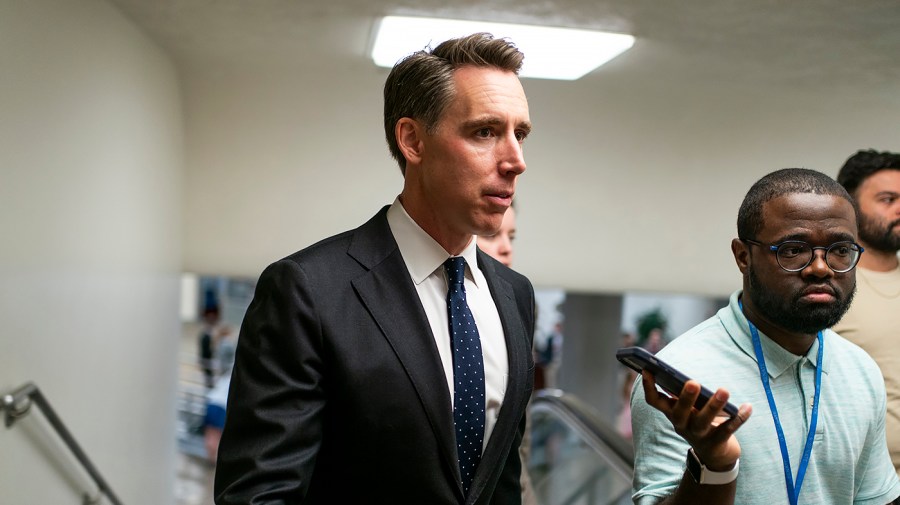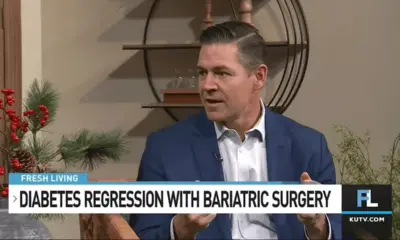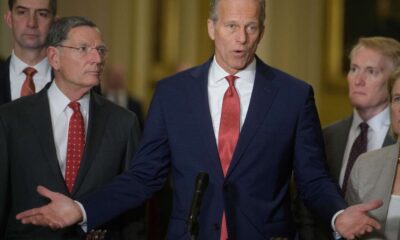Health
Senate Republicans Face Challenges Following Historic Shutdown Resolution

Senate Republicans have concluded the longest government shutdown in U.S. history, which lasted for over a month, without agreeing to a key demand from Democrats regarding health care. The shutdown officially ended on January 25, 2024, marking a significant moment in the ongoing discussions surrounding health subsidies designed to reduce health insurance premiums for millions of Americans.
The resolution of the shutdown did not come without its challenges. Senate Republicans are currently grappling with internal divisions that complicate their next steps concerning health care policy. While some members advocate for reforming health subsidies, others remain resistant to any changes that could be perceived as concessions to the Democrats.
Disagreements among Republicans have surfaced primarily around the need for extending tax subsidies that assist low- and middle-income families in affording health premiums. These subsidies are a central aspect of the Affordable Care Act and play a crucial role in maintaining access to health care for many Americans. The failure to address these subsidies during the shutdown negotiations has raised concerns about the potential impact on vulnerable populations.
Republican leaders are under pressure to formulate a coherent strategy moving forward. With the next congressional session approaching, they must navigate the complexities of their party’s differing viewpoints while also considering public sentiment. Recent polls indicate that a majority of Americans support the continuation of health subsidies, which adds further urgency to the situation.
As discussions evolve, it remains to be seen how Senate Republicans will reconcile their differences. Internal meetings are expected to take place in the coming weeks, where party members will seek to establish a unified approach to health care legislation. The outcome of these discussions could have significant implications for both the party’s future and the health care landscape in the United States.
In the meantime, Democrats are anticipated to leverage the situation to advocate for the expansion of health care benefits. They view the end of the shutdown as a potential opening to push for policies that address the needs of American families more comprehensively.
The evolving dynamics within Congress underscore the ongoing challenges surrounding health care reform and the importance of bipartisan cooperation in addressing these critical issues. As the political climate shifts, Senate Republicans face the task of uniting their party while responding to the pressing health care needs of the American public.
-

 Technology5 months ago
Technology5 months agoDiscover the Top 10 Calorie Counting Apps of 2025
-

 Health3 months ago
Health3 months agoBella Hadid Shares Health Update After Treatment for Lyme Disease
-

 Health3 months ago
Health3 months agoErin Bates Shares Recovery Update Following Sepsis Complications
-

 Technology4 months ago
Technology4 months agoDiscover How to Reverse Image Search Using ChatGPT Effortlessly
-

 Technology1 month ago
Technology1 month agoDiscover 2025’s Top GPUs for Exceptional 4K Gaming Performance
-

 Technology3 months ago
Technology3 months agoElectric Moto Influencer Surronster Arrested in Tijuana
-

 Technology5 months ago
Technology5 months agoMeta Initiates $60B AI Data Center Expansion, Starting in Ohio
-

 Technology5 months ago
Technology5 months agoRecovering a Suspended TikTok Account: A Step-by-Step Guide
-

 Health4 months ago
Health4 months agoTested: Rab Firewall Mountain Jacket Survives Harsh Conditions
-

 Lifestyle5 months ago
Lifestyle5 months agoBelton Family Reunites After Daughter Survives Hill Country Floods
-

 Technology4 months ago
Technology4 months agoHarmonic Launches AI Chatbot App to Transform Mathematical Reasoning
-

 Health3 months ago
Health3 months agoAnalysts Project Stronger Growth for Apple’s iPhone 17 Lineup




















